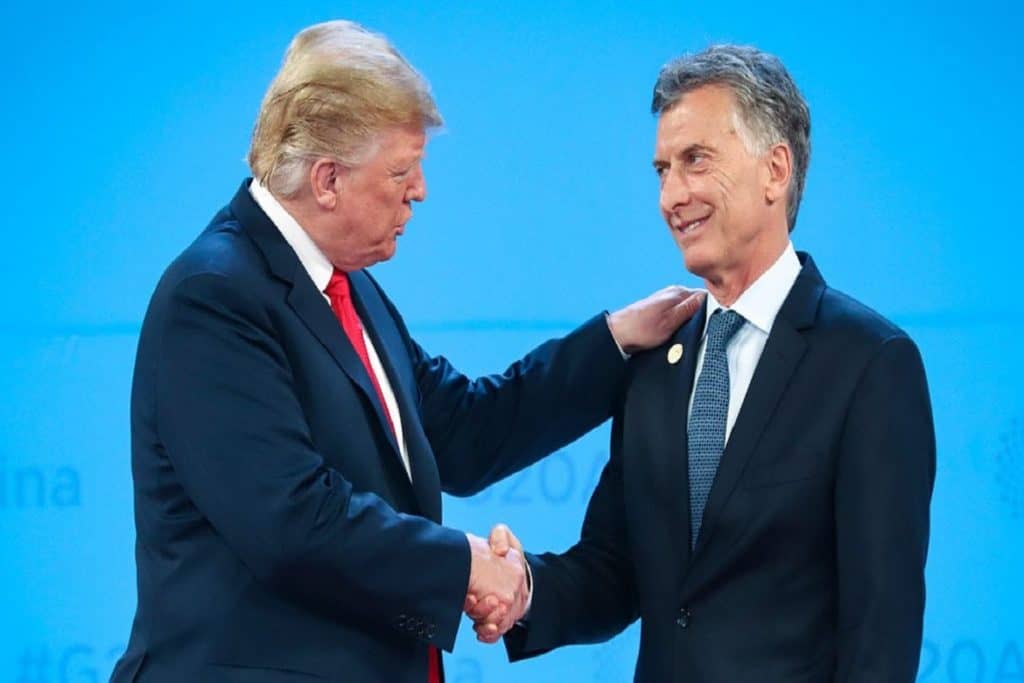The 21st Century has been very interesting for Latin America from a political and geopolitical point of view. In the past 20 years all countries in the region have experienced, directly or indirectly, a set of important political changes, and Argentina was not the exception of the rule.
At the beginning of the century, the political parties and leftist movements in the region began to strengthen significantly until they conquered power. Some countries began new “Revolutions” with radical changes, others promoted social agendas and some others sympathized less openly with these changes. At the end of 2010, leftist movements dominated most Latin American countries through the Sao Paulo Forum and related movements.
However, in the second decade of this century, a sustained collapse of the political dominance of socialism began to show: The right has returned. On December 10, 2015, the newly elected president of the Republic of Argentina, Mauricio Macri, took office. It was the end of more than 12 years of Kirchner revolution in that country.
The socialist policies of Nestor Kirchner and his wife and political successor, Cristina Fernandez de Kirchner produced a severe economic contraction, shortage of commodities and double-digit inflation. However, the populist propaganda apparatus of the Argentine left has managed quite well to mitigate the damage and blame the “return of the right” embodied in President Macri of all the political, social and economic problems of that country.
The last 4 years have not been easy for the Macri government who has had to generate austere and unpopular measures to try to curb the inflation he inherited from previous governments. The Argentine left has taken advantage of Macri’s little charisma and popular discontent to regain popular support. Once the presidential elections were called, a surprise came up: Cristina is back.
The unexpected return of Cristina to run –at least- as vice-president, represents a hope for the left in the continent: After gradually losing the power in almost all of Latin America, the left now clings mainly to the weak Venezuela Maduro’s regime and the governments of Nicaragua, Cuba, Bolivia and now Mexico as the last bastions of Marxist struggle in the continent.
The next elections will be crucial for the history of the Republic of Argentina and for the entire region. After the continuous failures, the Latin American left can demonstrate that it has the strength to return as a serious political movement. On the other hand, the right needs to remain in power to continue reversing all the effects of the Kirchnerist revolution.
From an international point of view, Macri’s triumph is vital for the foreign policy of the Trump Administration and Brazilian President Jair Bolsonaro. The three leaders are the banner of change in the region after the fall of most leftist governments. President Macri is one of the main collaborators of MERCOSUR and the Lima Group, a regional organization whose main purpose has been to specify mechanisms of struggle for the fall of the socialist government of Venezuela (and most likely, then that of Cuba).
For Russia and China, the presence – and possible continuity if re-elected – of the hostile Macri government has significantly damaged the economic interests of both countries. One of the first actions of the current Argentine government was to reverse numerous economic contracts with Iran, China, Russia and Syria under the pretext that they were corrupt businesses led by officials of the previous leftist government. This economic and political coup greatly affected the world left and significantly strengthened the interests of the United States in the region for the first time in several decades after the cold war.
This last fact is important since the public image of the United States was severely damaged after the continuous military, political and economic interventions against Argentina during the second decade of the 20th century. In other words, the Argentine people still keep the resentment against “US Imperialism” alive as a result of the Condor Plan, through which the CIA and other government entities in the United States supported and strengthened the South American dictatorships to prevent the emergence of the communist ideology in the darkest times of the cold war.
The possible return of Kirchner is very symbolic for both the Argentine left and the global left. But much more than the epic or poetic, the return of the left to power will generate a change in the geopolitical balance of the extremely important region. First, all the close links with China and Russia will be restored to promote a “multipolar world” according to the Kirchnerist doctrine. Likewise, Cristina Fernández, a faithful admirer of Hugo Chavez and the Bolivarian Revolution in Venezuela, would immediately withdraw support for interim president Juan Guaido and the Lima Group would lose one of its most important members, which would undoubtedly strengthen and give a breathe in the international political chess of the already weakened Maduro regime after the total political, social and economic collapse suffered by the south American nation after the unexpected death of the leader of the Bolivarian revolution on March 2013.
The triumph of the Argentine left in the upcoming presidential elections will be an inspiration for the other movements. The powerful propaganda apparatus learned by the Soviets and perfected by the Cubans and Venezuelans will know how to take advantage of this fact to try to regain power in all the places where it has lost them. The –at least for them- glorious times of Hugo Chávez, Lula Da Silva and Néstor Kirchner will return with a strengthened and trained people to continue resisting American imperialism. In other words, a domino effect could be unleashed that restores the power of the left in the region.
In short, the elections in Argentina will be a clear balance of political power throughout the region. Their results will reflect symbolically and really what is the feeling of the Latin American peoples in the face of the continuous wave of political changes that have been happening over the past 20 years.







